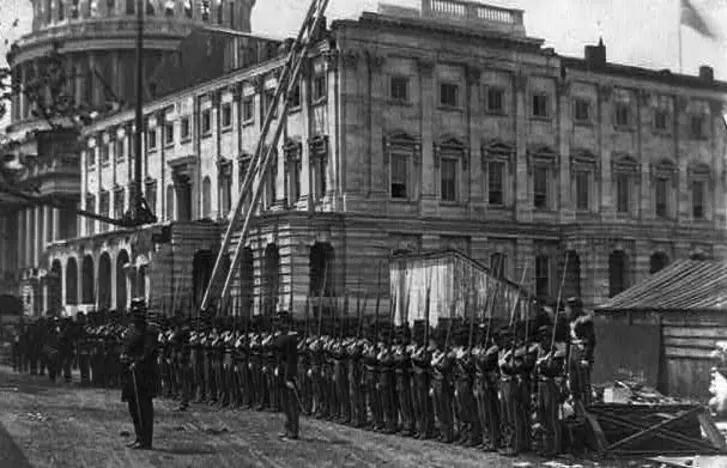
Union soldiers stand at attention in front of the U.S. Capitol on May 13, 1861.
- Via Library of Congress

Union soldiers stand at attention in front of the U.S. Capitol on May 13, 1861.
- Via Library of Congress
Women spies played a dangerous, but critical role in the Civil War. If caught, these women could be imprisoned, deported to Canada, or killed. Committed to their cause, many spies devised unusual strategies in order to convey the latest enemy knowledge back to headquarters. Many sewed pieces of fabric containing the confidential information on their clothing, and hid documentation in the hoops of their skirts. Women spies were an additional bonus during wartime conflict. The patriotism and fearlessness of women, like Rose O'Neal Greenhow, Harriet Tubman and Elizabeth Van Lew, facilitated the transmission of crucial information that might not have otherwise been factored into wartime strategies.
¨The Civil War broke out at a time when there were strict gender roles for women. While oftentimes this worked in the female spy’s favor, sometimes it did not, and they would be caught. Women raised suspicions because of the unladylike behavior that sometimes came with being a spy. As soldiers caught on through the duration of the war it became harder and harder for women to cross lines without being searched, which led to a lot of arrests. Female spies who were caught were rarely executed but were usually either imprisoned or deported to Canada or the South.¨
- Tunnel Hill Heritage Center and Museum